Introduction
Women’s Action Network Dorset | WAND is an inclusive organisation that operates under English law. Inclusivity and Safety are two of its core values. As such, we promote inclusion, and challenge victimisation and bullying.
When we refer to Women in any of our documentation, policies, communication or activities we mean any person who identifies with Womanhood, The Feminine, femininity or being a woman in any way that is of relevance to them; including trans women, non-binary and gender-fluid people. This policy outlines our approach to the inclusion of trans women, non-binary and gender fluid people in our activities and decision making.
Definitions
For this policy, we use the following definitions:
- Assigned at birth means the gender category a person was given when they were born.
- Cis / Cisgender means not transgender or transsexual.
- Gender – a social or cultural identity by which a person chooses to present themselves externally to society and originates loosely from distinctions of sex and has unlimited permutations
- Gender fluid means someone who identifies with and presents as a different gender at different times.
- Non-binary means someone with a gender/ identity that is not exclusively male or female, masculine or feminine—identities which are thus outside of the gender binary. May also be referred to as genderqueer. May also be agender/genderless.
- Transition –the process of developing congruence with your gender identity. This may or may not involve surgery, hormone replacement therapy, and changes to assist being correctly identified through clothes, speech, etc.
- Trans / Transgender someone whose gender does not, either partially or fully, align with the gender they were assigned at birth. Non-binary and non-transitioning transgender people as well as gender fluid people are fully included and equal under this definition.
- Sex – the biological binary characteristics of males and females such as chromosomes, hormones and reproductive organs.
Trans Women and our Activities
Women’s Action Network Dorset is a women-focussed organisation. Many of our events welcome all people who identify with, and are supportive of, our mission and purpose including men.
At times we will run, promote or collaborate with, events and activities that are exclusively for women only. When we do, we will undertake an Equality Impact Assessment to ensure we are operating lawfully as well as a Risk Assessment to ensure the safety of all people involved in that activity.
We recognise that, at appropriate times, maintaining a women-only activity is important because women face significant inequality in society, face violence and abuse (the vast majority of which is perpetrated by men[1]) and have health and social needs that are distinct from the needs of men. We know that some women will not, or cannot, access activities provided in a mixed-gender setting. As part of our feminist values, Women’s Action Network Dorset is committed to challenging all forms of oppression, discrimination, and victimisation.
The Equality Act 2010 protects any trans person who ‘intends to undergo, is undergoing or has undergone gender reassignment’, which means that trans women who have taken any steps to move towards living as women are covered by the legislation. Women’s Action Network Dorset’s activities are open to all self-identifying women who have, or are taking steps towards living as women, in line with the provisions of the Equality Act.
We will take a person-centred and case-by-case approach to the inclusion of non-binary and gender fluid people within our activities. We recognise that some people who have a non-binary or fluid gender may be presumed to be women, or to live wholly or partly as a woman, and these individuals share many of the experiences that women do and face similar forms of discrimination. In these cases, it may therefore be entirely appropriate for those non-binary or gender fluid people to access our activities, if they feel comfortable to do so (understanding that they are likely to be ‘read’ as women) and feel that this will benefit them. We recognise that some trans women also identify as non-binary or gender fluid, and if they are living, the majority of the time as women they should also be included.
We aim to ensure that all women have a positive experience with us, regardless of whether they are trans or cis-gender, or any other factors. We acknowledge that trans women may face additional barriers in accessing our activities and that we must take additional steps to address these, including:
- Ensuring that trans-women have representation on our Committee/Board and the decisions we make as an organisation
- Ensuring that volunteers receive sufficient training and guidance to understand and support the needs of trans women, non-binary and gender-fluid people
- Ensuring that publicity material is inclusive e.g., using the phrase “open to any self-identifying women” for women-only events
- Ensuring that there is a visible statement on our website that affirms our commitment to inclusion and that Women’s Action Network Dorset is a centre for ALL women.
Our volunteers:
- Will challenge transphobia and homophobia in any shape of form, including against non-binary and gender fluid people wherever they see it taking place.
- Will use correct and respectful language about a trans woman’s, non-binary or gender fluid person’s identity (e.g. they will ask which pronouns and/or names the person prefers to be called).
- Will not disclose trans, non-binary or gender fluid person’s gender history without their permission
[1] This is recognised by various sources. The Ministry of Justice reports that men are more likely to be perpetrators of crime, particularly violent crime, and make up 95% of the current prison population and 85% of offenders managed in the community.
Trans Volunteers Including Committee Members
In line with the Equality Act 2010, Schedule 9, Part 1, Paragraph 1[1], most roles at Women’s Action Network Dorset require the volunteer, committee or Board member to be a woman. This definition includes all self-identifying women as described above – including some non-binary people, if they were assigned female at birth and are continuing to live mostly in this gender or identify and live as non-binary trans women.
We do not ask about a volunteer’s trans status during the recruitment process and if a disclosure is made, it is not taken as a relevant criterion for the selection process.
We recognise that disclosing a person’s trans history to colleagues, partners or the general public without their consent is highly distressing to that individual and can also be unlawful. We will always seek permission of the trans person before disclosing any information to others.
If a volunteer notifies us that they are gender fluid or are considering transitioning, a meeting should be held between a committee member and that person to discuss in confidence how they wish to consider the following issues:
- the expected timescale of the transition process, and what is entailed or the nature of the gender fluidity and how that relates to WAND activities
- what amendments will be required to records
- communication of relevant issues to colleagues and partners and anyone else the person comes into contact with whilst carrying out WAND activities
- whether the person wishes to be called by a different name and/or pronoun
We will work collaboratively with the volunteer to mutually agree an action plan.
[1] Schedule 9 (part 1) of the Act provides that in certain circumstances it is lawful for an employer to apply a requirement to have a particular protected characteristic where, having regard to the nature or context of the work; there is an occupational requirement, the application of the requirement is a proportionate means of achieving a legitimate aim and the applicant does not meet the requirement, or (except in the case of sex) the employer has reasonable grounds for not being satisfied that the person meets the requirement.
Our Position in Relation to Working with Partners
WAND will work only with other organisations that operate within our policy and under the Dorset Women’s Charter[i] that it will co-design with partners, network members and local communities within Dorset. That means, that where it collaborates and partners with, signposts to, or promotes the activities of, other organisations who exclude trans women or non-binary and gender fluid people it will only do so where these activities are lawful and where Equality Impact Assessments and Risk Assessments have been carried out and outcomes published and deemed to be appropriate and relevant. We reserve the right to refuse to collaborate and partner with, signpost to, or promote the activities of groups and organisations who operate exclusionary practices which fall outside of the law.
[i] The Dorset Women’s Charter is a charter currently in development that aims to bring together people, organisations and existing networks under a common goal to reduce inequality for women and girls in Dorset.

